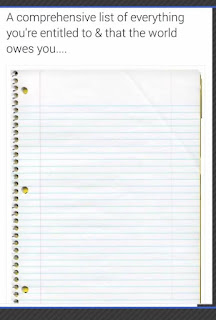Single-mindedness is a necessary exercise. How else to “go
straight to the store and back, you hear?” It is the ticking off of a list of
things to do, the accuracy of accounting and accountability, and of our crucial
implementation of protocols and standards and expectations that achieves the
correct and precise and needed results. (As a child I always wondered why,
whenever we sang the song, “London Bridge is falling down, falling down (and
again); we all fall down!” I wondered why the builder just didn’t ensure that
it was built correctly!) Then too, one such as I very seldom bothers to
ascertain all the facts, find out what the song is really about, check out the
references, and make concrete objectivity out of situations. ‘One such as I’ am
too right-brained, too intuitive, too abstract, too metaphorical, too
distractible, and, well, too wordy.
The metaphorical mind is at once a caged bird. The acculturation
of centuries incarcerates it, no matter the freedom its flights of fancy may
take. At the same time, the now-a-days mind is advantaged by the very history
that brings it to this time-period; all of philosophy and technology are
married by the progress of humanity. Nature is affected, yes, but it essentially
is on trajectories of its own evolution. It is we, mankind, who with intentions
may make the shifts within the reaches of our own consciousness, however accidentally
we may land. And yet, conscribed to being human, we cannot yet entirely free
ourselves from the cages of society; become a member of any family, any group,
any belief system, any town, any city, country, continent or even of our world, and
there are evident expectations to follow. How else does one decipher the squiggly characters
on this page? Life takes the learning of reading, ‘righting, and ‘rithmatic, right? Just how else is one expected to become (paradoxically) independent? Indeed, to each
subgroup within the nests that we birds choose (or not) as we progress among the choices in our lives,
there is evident expectation that one follows the rules. Indeed, the very cages
within which we each exist are there to protect ourselves from others, as much
as they from us. In-deed, it is for the sake of simplicity that our cultures
keep it so.
“Just call a spade a spade,” my father often admonished me.
He had a very distinct left brain. He was a most punctilious person. Every
comma and dot and crossing of the T was precise. He preferred five or six word
sentences. He liked simple sentences. “Keep them short. Say it in plain talk.
What are you reading, Jane Austen?” Admittedly, our language has changed. (There
was even a time when OMG was neither ubiquitous nor understood.) Admittedly, it
is easier to be clear, easier to understand what another is getting at, easier
to convey the list of groceries, easier to deliver the expectations, and easier
to get what you want if you deliver or read or use precise language. (Yet
still, one confesses, it takes quite a lot of knowledge to understand the
modern lexicon. I for one often interchange LOL for Lots of Love, ha!)
Understanding one another is essential 'in our world'. Yet how
are we to expand our knowledge and to stretch beyond our habitual expectations
if we do not take on, find out, look up, and even use the new terms, the new
ideas, and the new implications arising from ‘out there’? Poetry and analogy
and imprecision and obfuscation and parables and stories and mythology and even
our every-day lying all have their place in the evolution of our consciousness.
Yet precision, so very vital to us too, can ensure that the brakes do not fail.
Betwixt practicality and purpose, betwixt intention and product, expectation
and delivery, and betwixt thee and me there lies at all times the essential
action. (LOL.) Yes, what we do defines our lives. Indeed, life itself is a verb, awaiting
movement.








